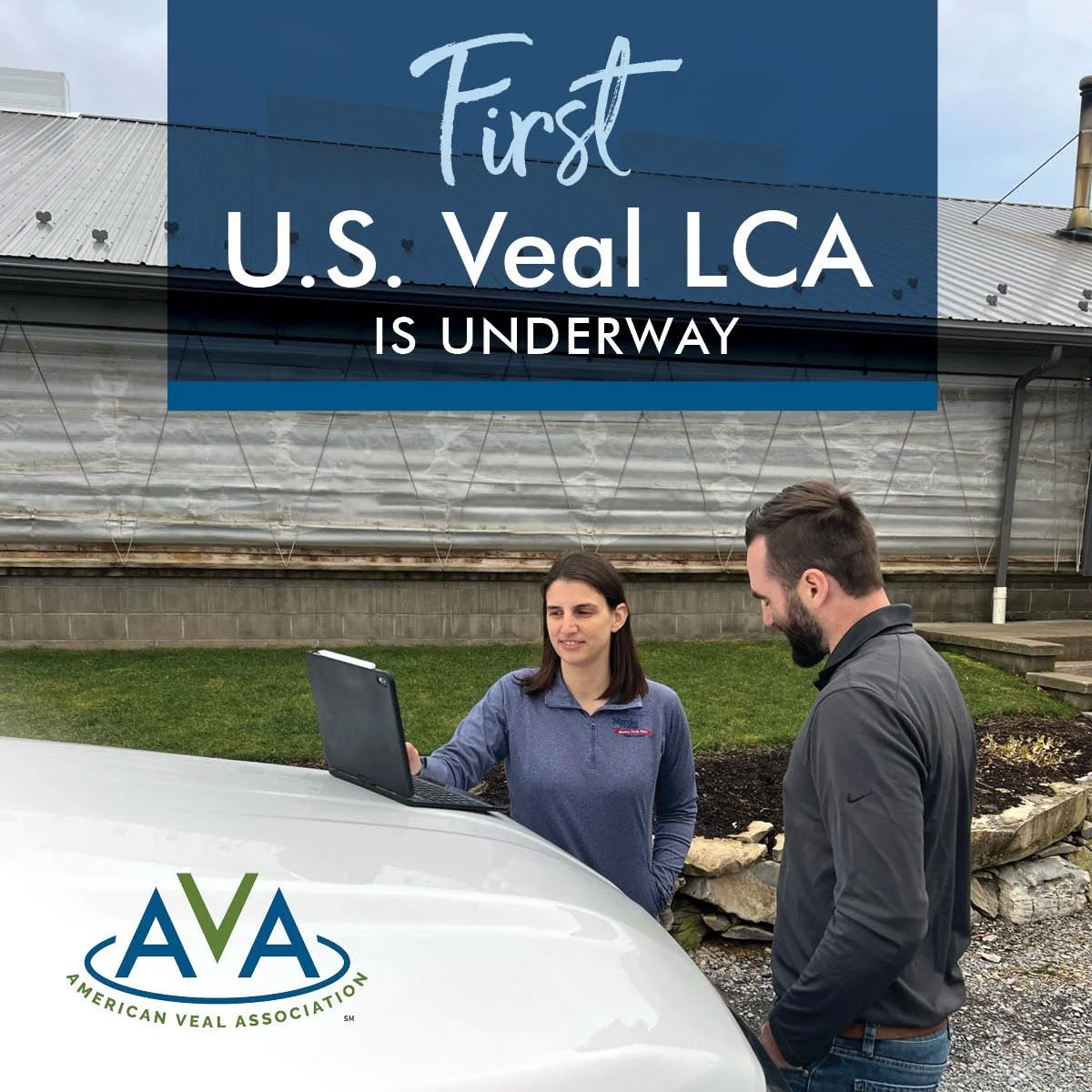With the growing interest in understanding the environmental impacts of farm and food production, many companies and organizations are proactively quantifying the various impacts and resources used in the lifecycle of a product or service. The American Veal Association (AVA) is excited to embark on the first-ever Life Cycle Assessment of the milk-fed veal industry in the United States. Data collection began in February on farms in Pennsylvania and New York and will continue in other states in the months ahead.
AVA selected Sustainable Environmental Consultants (SEC) to complete the LCA, using a cradle-to-farm gate approach, to capture the true greenhouse gas (GHG) impact of farms raising U.S. milk-fed veal. SEC delivers field-level quantification and practice verification services for a complete spectrum of environmental impacts. Milk-fed veal farms are primarily located in Pennsylvania, New York, Ohio, Indiana, Michigan and Wisconsin. The data collection will include farms from many of these key geographical areas.
SEC is doing boots-on-the-ground data collection and personal interviews with veal farmers and company representatives. This involves collecting data on all facets of the AVA members’ farms including elements such as animal housing, feeding practices, manure management and crop production. Upon completion of the assessment, each member company will receive an individual report specifically focused on the programs used by their farmers. An industry composite report will be provided and include recommendations for potential changes in the future to improve the industry’s environmental impact.
Resourcefulness and sustainability have always been core to the heritage of the veal industry. Milk-fed veal utilizes Holstein bull calves from dairy farms and excess whey and skim milk powder from cheese and butter manufacturers to produce a high-quality protein product. Once finalized later this year, the LCA will provide AVA members with a quantifiable baseline to build upon in their commitment to continuous improvement. Of the milk-fed veal raised in the United States, more than 95% is raised by AVA members. Therefore, the organization is confident that the values received from the LCA will be representative of the entire American milk-fed industry.
We understand stakeholders within the food system and consumers want and deserve more information about how their food is produced and we’re dedicated to providing that information. The LCA will enable AVA to confidently discuss the environmental impact of choosing veal as a protein source once the study is completed.
The LCA of the U.S. veal industry was identified as a priority when the AVA created its Ethical Commitments. The full document can be found here.


